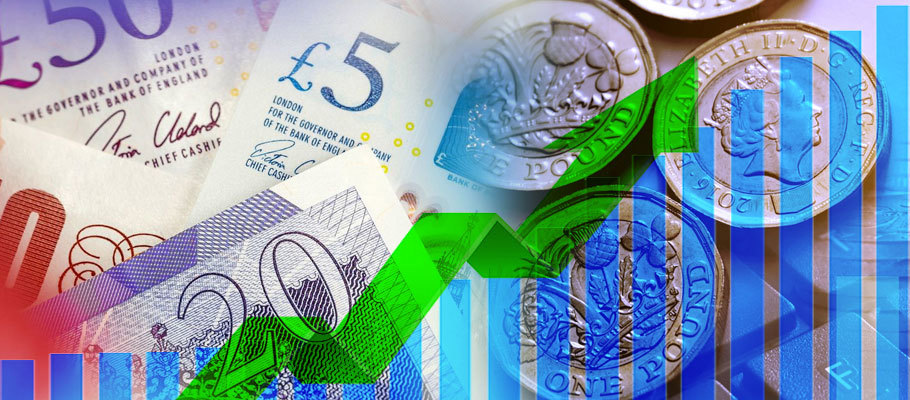
Published: April 6th, 2022
New data from the International Monetary Fund (IMF) shows that Pound Sterling was a key beneficiary of diminished US Dollar dominance in central bank foreign exchange reserves in the final quarter of last year. However, the agency also says the mix could change once the figures are in for Q1 of 2022.
According to its latest Composition of Foreign Exchange Reserves report, central banks extended their currency reserves in the fourth quarter of 2021, expanding the total value of worldwide central bank reserves by close to 0.8 per cent to just more than USD 12.04 trillion.
Regardless of the growing overall basket, the greenback’s share slipped to 58.79 per cent from 59.19 per cent in the three months prior. As a percentage that marks a new all-time low.
In a market comment responding to the IMF figures, HSBC’s FX Strategy Unit wrote that ‘RMB and GBP both saw an increase of 0.1ppt as smaller currencies like AUD, CAD, and CHF added 0.3ppt between them. There isn't anything in the numbers pointing to a seismic shift in central bank reserve preferences, with the caveat that it looks at the period prior to sanctions hitting the Russia’s central bank’.
That’s created a flurry of comment about the USD’s status and potential “de-dollarization”, HSBC says.
When measured in USD terms instead of a proportion of the broader basket, the Canadian Dollar saw the fastest growth while holdings in Sterling, Swiss Franc, and Renminbi all rose.
The pecking order in Q4-21 would also have been influenced, though, by changes in the value of each fiat relative to the greenback. The performance of domestic markets for government bonds would also have had an influence.
'That’s not to say diversification in central bank reserves isn't relevant,’ HSBC added. 'Rather it points to a faster pace that will influence the overall trend for forex traders.’
While the USD’s share of global reserves dimmed slightly last quarter to the benefit of smaller currencies, the basket mix could be quite different when the IMF’s Q1-22 report comes out in June.
Exactly how different depends on the extent to which Europe’s central bankers sold in late February and early March when the financial impact from Russia’s invasion of Ukraine was at its most severe.
Since the Yen, Euro, Dollar, Renminbi, and Sterling account for the majority of all reserves, it’s a safe bet that any first quarter selling would have been focused on these currencies, leading to their respective shares of the basket dipping during the period.
In recent months APAC forex reserves have reduced, even when you discount for valuation changes,’ said TD Securities’ Currency Strategy unit in an analyst note. ‘That highlights the increasing pressure on Asian forex traders as markets price-in rising US rates. It could be that the decline in the region's forex reserves extends further given the expected reduction in current account positions thanks to higher energy costs and shrinking portfolio inflows’.
The IMF's data covering Q1-22 will be published on the last day of the second quarter, and may have a different mix due to Russia’s February 24 invasion of Ukraine. Extreme sanctions on the country’s financial system compelled central banks to sell-off part of their reserves to strengthen support for their own currencies.
In Poland the Narodowy Bank Polski said that its USD 160 billion contingency had been used a number of times in an effort to stabilise the Zloty. The bank said it also aimed to support Ukraine’s central bank and currency.
A number of analysts have postulated that a freeze on Central Bank of Russia assets by G7 countries might have prompted third-party central banks to sell some of their hoard of greenbacks. That view ignores the fact that most countries with major reserve currencies also took part in the sanctions.
‘The gradual decline of the Dollar in central bank reserves may persist as the world shifts to a more multipolar global financial and monetary system. That process will be slow and for the time being there is no clear alternative to USD,’ said HSBC.
Another factor to consider is the Pound’s recent correlation to bond yield differentials in the context of the subtle shift some analysts have noted in Bank of England (BoE) policy. It may say something about the outlook for other currencies including USD.
GBP rose against several G10 majors in the opening session of this new week (wc 4th April) but by mid-week was still taking some losses against all but the Franc and Yen for the previous 30 days. A change in BoE policy signals was seen as decisive in those declines.
Threadneedle Street warned in March that market expectations for Bank Rate had moved to levels that the UK economy couldn’t sustain.
Deputy Governor Sir Jon Cunliffe told the Financial Times that the central bank’s economic forecast scheduled for May would probably show inflation dipping even further below target.
‘A lot will depend on how the Ukraine conflict unfolds and the way sanctions could evolve. It seems things will intensify and extend the inflation surge, squeezing household incomes further. The subsequent dip in demand through lower business investment and decreased household consumption will likely be greater than we expected in February’.
‘In terms of monetary policy there isn't much a bank can do to ameliorate economic pressures on price and cost that are generated externally. Central banks are also limited in how we can respond to offset the resulting pinch on household incomes. What we can do is take steps so that when the existing pressures fade, inflation gets back on track to its two per cent target’.
The impact of those factors on UK government bond yields needs to be watched closely by forex traders and in part because Sterling has been rising and falling in tandem with differentials in bond yields between British and countries of some counterpart currencies over the past few weeks.